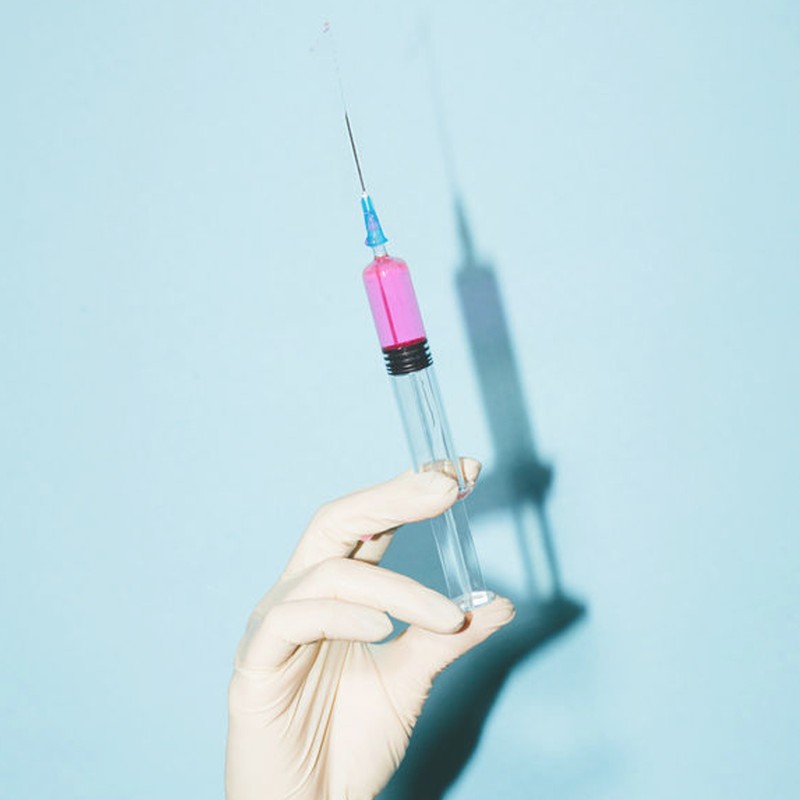What You Need To Know About The HPV Vaccine
Firstly, what is HPV?
Human papillomavirus (HPV) is a viral infection that’s passed between people through skin-to-skin contact. There are more than 100 different types of HPV, 40 of which affect the genital area. Some types are described as ‘high risk’ as they’re linked to the development of cancers – such as cervical cancer and throat cancer – while other types can cause conditions like warts or verrucas.
Most people will get an HPV infection at some point in their lives – an estimated 80% of the population – and their bodies will get rid of it naturally without treatment. In fact, infections don’t usually cause any symptoms, and most people won’t even know they're infected.
However, some high-risk types are not able to be cleared by the immune system and it can cause abnormal cells to develop – cervical screenings (previously called smear tests) can detect these cell changes on the cervix. Women can then be monitored and/or treated to stop cancer from developing.
How does the HPV vaccine work?
Currently, the national NHS HPV vaccination programme uses a vaccine called Gardasil. Introduced in 2008, the vaccination protects against four types of high-risk HPV: 6, 11, 16 and 18, which are responsible for the majority of cases of cervical cancer and genital warts. Types 16 and 18 are the cause of most cervical cancers in the UK (more than 70%), while types 6 and 11 cause nearly all cases of genital warts (90%).
The first dose of the HPV vaccine is routinely offered to schoolgirls aged 12 and 13 in school, with a second dose given six to 12 months later. Girls can also have the HPV vaccination on the NHS up to their 18th birthday (although if they are over the age of 15, they will need three doses).
Studies have already shown the vaccine protects against HPV infection for at least ten years, although experts expect it to work for a lot longer. And it is really working – research released earlier this week revealed that HPV 16 and 18 infections have decreased by 86% in women aged 16 to 21 who were eligible for the vaccination as adolescents between 2010 and 2016.
Charity Jo’s Cervical Cancer Trust believe this could result in a two-thirds reduction in cervical cancer incidence in women under 30 by 2025.
Why is it given at such a young age?
According to the NHS, HPV infections can be spread by any skin-to-skin contact, and are usually found on the fingers, hands, mouth and genitals. This means the virus can be spread during any kind of sexual activity, including touching – therefore, the vaccination works best if girls have it before they become sexually active.
What about women over 18?
For those over 18, private clinics and pharmacies such as Boots and Superdrug also provide the vaccination at a cost (Boots up to age 44 and Superdrug up to age 27). However, prices are steep – around £300-£450 for a full course of jabs.
As for how effective the vaccination will be if you’ve already been sexually active, experts can’t seem to agree. As Boots pharmacist Tom Kallis explains, if you’re already infected with HPV it won’t cure the virus or prevent possible development of disease, however it could prevent you from contracting new HPV infections in the future. “With increasing age, you may have a less pronounced immune response to the vaccination – but are likely to still get some benefit,” he said.
Can men be vaccinated too?
Yes – on the NHS in certain circumstances, and privately at any clinic offering the vaccine. The same types of HPV that cause cervical cancer in women – types 16 and 18 – can cause cancer of the anus, penis, mouth and throat in men. In addition, HPV types 6 and 11 are responsible for the majority of genital wart infections in men too.
The NHS says that vaccinating girls indirectly helps protect boys from these types of cancer and genital warts because vaccinated girls will not pass HPV on to them – known as ‘herd immunity’.
However, men who have sex with men (MSM) don’t benefit in the same way from the girls’ programme. That’s why, from April 2018, the NHS is offering the HPV vaccination for free to MSM up to the age of 45 when they visit GUM (genitourinary medicine) clinics and HIV clinics in England. Trans women and men who have sex with men are also eligible.
But, according to health experts, it’s vital that the NHS offers the free vaccine to school boys, too. Cases of head and neck cancers are soaring in men across the world, many of which doctors believe is due to HPV contracted from oral sex. As a result, 15 countries across the globe – including Canada and Australia – now offer the jab to pre-teens of both sexes.
“To be blunt, the case for giving the vaccine to boys as well as girls is now unequivocal as far as I am concerned,” said Professor Mark Lawler, cancer research specialist at Queen’s University Belfast. “We have a chance to eradicate both these conditions – cervical plus neck and head cancers – and we should not be hesitating.”
For more information, visit NHS.uk
DISCLAIMER: We endeavour to always credit the correct original source of every image we use. If you think a credit may be incorrect, please contact us at info@sheerluxe.com.


